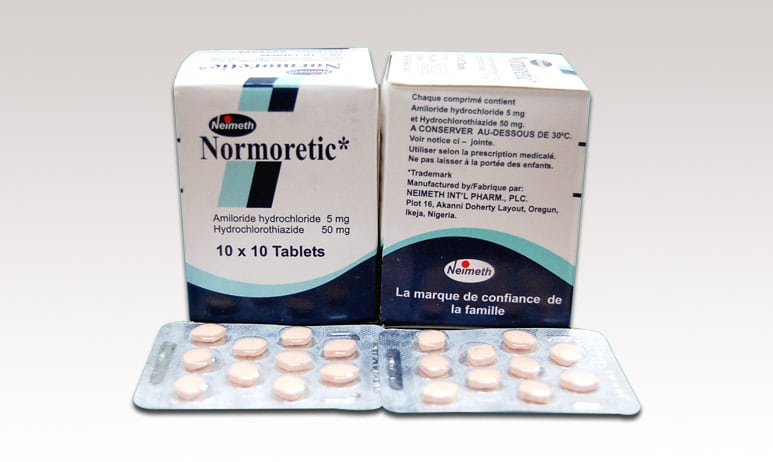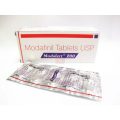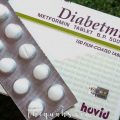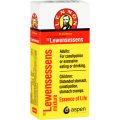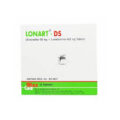What is Normoretic?
Normoretic is a combination medication for high blood pressure produced by Neimeth Plc. It contains Amiloride hydrochloride 5mg and Hydrochlorothiazide 50mg. Amiloride is a potassium sparing-diuretic that also prevents your body from absorbing too much salt and keeps your potassium levels from getting too low.
Hydrochlorothiazide is a thiazide diuretic (water pill) that helps prevent your body from absorbing too much salt, which can cause fluid retention. Normoretic is in a class of medications called diuretics (‘water pills’). They work by causing the kidneys to get rid of unneeded water and salt from the body into the urine.
Normoretic is used alone or in combination with other medications to treat high blood pressure and heart failure in patients who have low amounts of potassium in their bodies or for whom low potassium levels in the body could be dangerous.
High blood pressure is a common condition and when not treated, can cause damage to the brain, heart, blood vessels, kidneys and other parts of the body. Damage to these organs may cause heart disease, a heart attack, heart failure, stroke, kidney failure, loss of vision, and other problems. In addition to taking medication, making lifestyle changes will also help to control your blood pressure. These changes include eating a diet that is low in fat and salt, maintaining a healthy weight, exercising at least 30 minutes most days, not smoking, and using alcohol in moderation.
Warnings
You should not use Normoretic if you have kidney disease, urination problems, diabetes, or high levels of potassium in your blood.
Some medicines can cause unwanted or dangerous effects when used with Normoretic. Your doctor may need to change your treatment plan if you use potassium supplements or certain diuretics (spironolactone, triamterene).
If you have diabetes, do not use Normoretic together with any medication that contains aliskiren (Amturnide, Tekturna, Tekamlo, Valturna).
Before taking this medicine
You should not use this medication if you are allergic to hydrochlorothiazide or amiloride, or if you have:
- kidney disease or are unable to urinate;
- high potassium levels (hyperkalemia); or
- if you are taking potassium supplements.
Some medicines can cause unwanted or dangerous effects when used with Normoretic. Your doctor may need to change your treatment plan if you use potassium supplements or certain diuretics (spironolactone, triamterene).
If you have diabetes, do not use Normoretic together with any medication that contains aliskiren (Amturnide, Tekturna, Tekamlo, Valturna).
To make sure Normoretic is safe for you, tell your doctor if you have:
- high cholesterol, heart disease, coronary artery disease;
- cirrhosis or other liver disease;
- glaucoma;
- a breathing disorder;
- gout; or
- an allergy to sulfa drugs or penicillin.
This medication is not expected to be harmful to an unborn baby. Tell your doctor if you are pregnant or plan to become pregnant during treatment.
Hydrochlorothiazide can pass into breast milk and may harm a nursing baby. You should not breast-feed while you are using hydrochlorothiazide and amiloride.
How should I take Normoretic?
Follow all directions on your prescription label. Do not take Normoretic in larger or smaller amounts or for longer than recommended.
Take Normoretic with food.
Your blood pressure will need to be checked often. Your blood and urine may also be tested if you have been vomiting or are dehydrated.
If you need surgery or medical tests, tell the doctor ahead of time that you are taking medication that contains hydrochlorothiazide. You may need to stop using the medicine for a short time.
If you are being treated for high blood pressure, keep using this medication even if you feel well. High blood pressure often has no symptoms. You may need to use blood pressure medication for the rest of your life.
Store at room temperature away from moisture, heat, and light. Do not freeze.
What happens if I miss a dose?
Take the missed dose as soon as you remember. Skip the missed dose if it is almost time for your next scheduled dose. Do not take extra medicine to make up the missed dose.
What happens if I overdose?
Seek emergency medical attention or call the Poison Help line.
What should I avoid while taking Normoretic?
Drinking alcohol can increase certain side effects of hydrochlorothiazide and amiloride.
Do not use salt substitutes or low-sodium milk products that contain potassium. These products could cause your potassium levels to get too high while you are taking Normoretic.
Avoid a diet high in salt. Too much salt will cause your body to retain water and can make this medication less effective.
This medication may impair your thinking or reactions. Be careful if you drive or do anything that requires you to be alert.
Avoid becoming overheated or dehydrated during exercise and in hot weather. Follow your doctor’s instructions about the type and amount of liquids you should drink. In some cases, drinking too much liquid can be as unsafe as not drinking enough.
Normoretic side effects
Get emergency medical help if you have signs of an allergic reaction: hives; difficulty breathing; swelling of your face, lips, tongue, or throat.
Call your doctor at once if you have:
- a light-headed feeling, like you might pass out;
- high sodium–headache, confusion, slurred speech, hallucinations, vomiting, severe weakness, muscle cramps, loss of coordination, feeling unsteady, shallow breathing; or
- high potassium–slow heart rate, weak pulse, muscle weakness, tingly feeling.
Common side effects may include:
- diarrhea, constipation;
- mild stomach pain; or
- tired feeling.
This is not a complete list of side effects and others may occur. Call your doctor for medical advice about side effects. You may report side effects to FDA at 1-800-FDA-1088.
What other drugs will affect Normoretic?
Tell your doctor if you regularly use other medicines that make you light-headed (such as cold medicine, a sleeping pill, narcotic pain medicine, muscle relaxer, or medicine for anxiety, depression, or seizures). They can add to the side effects of hydrochlorothiazide and amiloride.
Tell your doctor about all medicines you use, and those you start or stop using during your treatment with Normoretic, especially:
- lithium;
- tacrolimus; or
- other blood pressure medications.
This list is not complete. Other drugs may interact with hydrochlorothiazide and amiloride, including prescription and over-the-counter medicines, vitamins, and herbal products. Not all possible interactions are listed in this medication guide.


